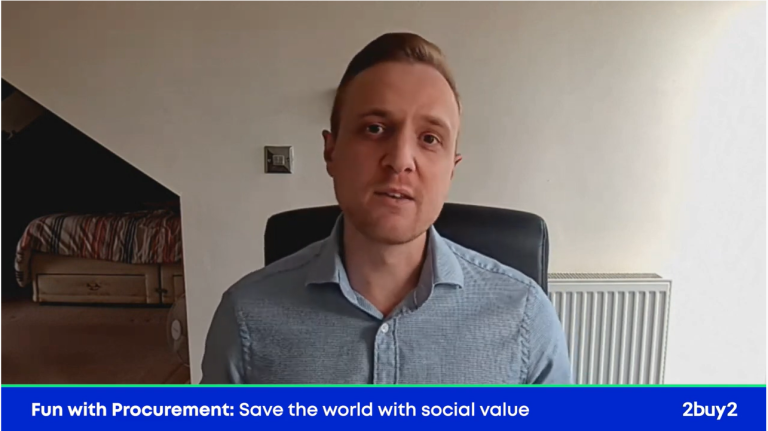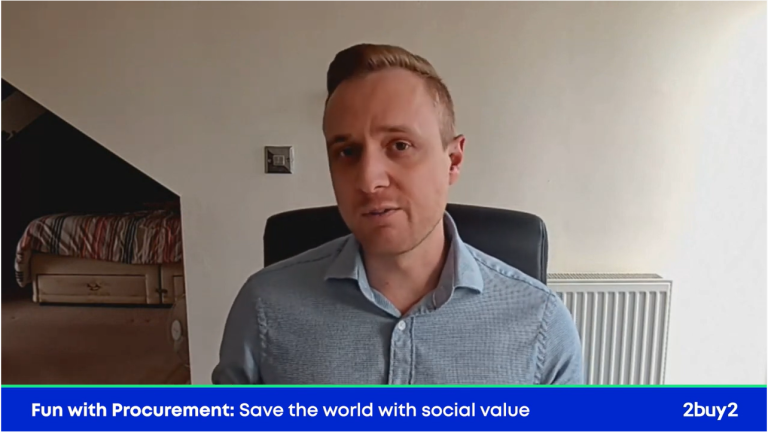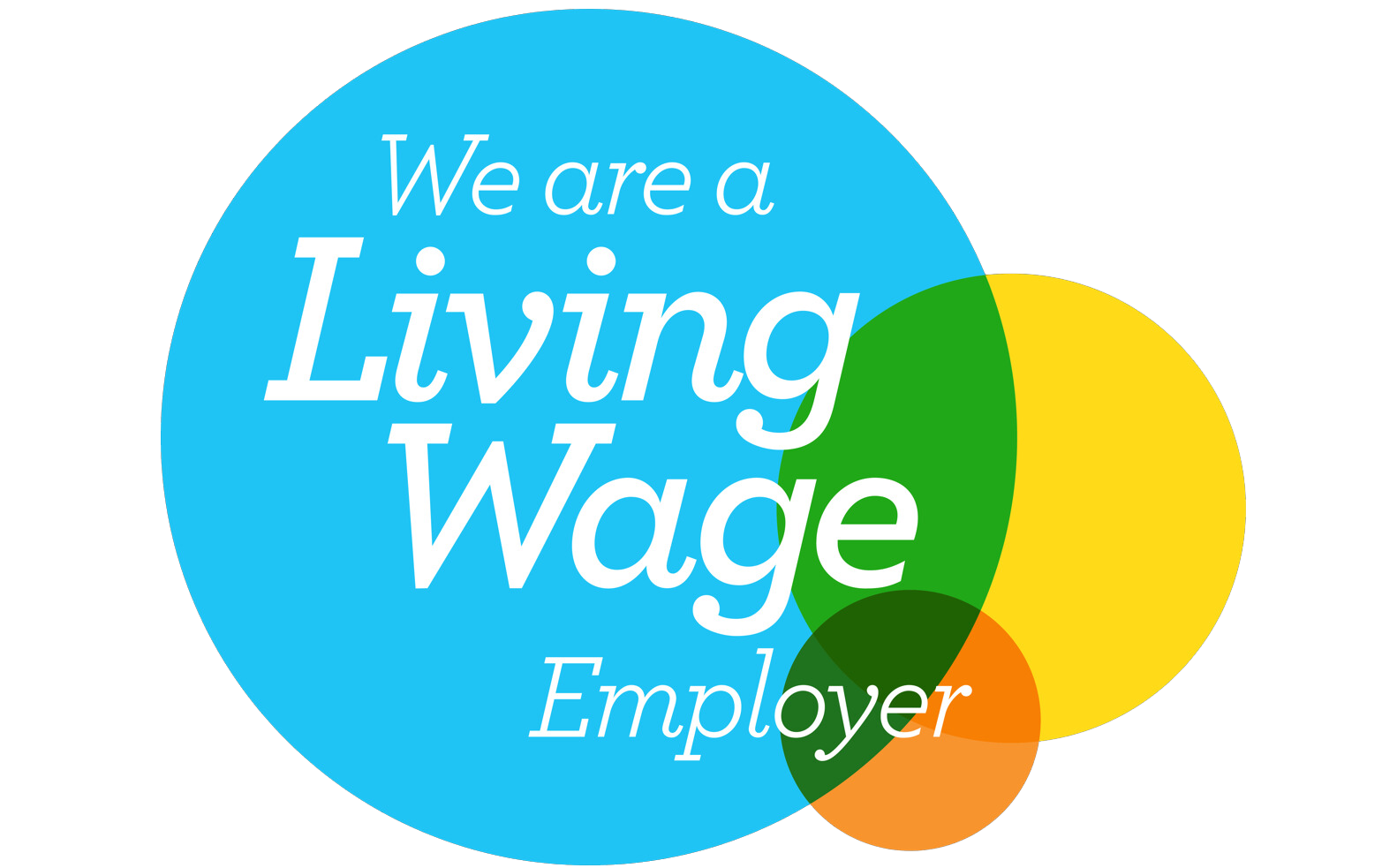We are back again with our fourth episode of Fun with Procurement! If you’ve missed episodes one, two or three click those links and be sure you’re caught up.
For our fourth episode – Save the World with Social Value – CEO Rob Kissick, Marketing Executive Emma Edwards and new guest; Category Specialist Ben McGirr cover social value in its entirety!
Our trio explain:
- What social value is
- The reasons behind its renewed importance
- How to make proper use of it in your contracts
Click here to watch and don’t forget to subscribe so you don’t miss our next episode!
What is Social Value?
overnment have since put a lot of focus on what social value is officially, through different laws and policies.
Back in June 2021, a new National Procurement Policy Statement was created, in which all public procurement bodies were said to “have regard” for social value. This regard included a set of conditions to try and meet within tenders where appropriate:
- Create new businesses, jobs and skills
- Tackle climate change and reduce waste
- Improve supplier diversity, innovation and resilience
The definition Ben gives is as follows:

“So social value; it’s essentially generating benefits, not just for your organisation, but for society, the economy and the environment.
So, for every pound you spend, can it also potentially benefit someone else rather than just yourselves? Sometimes you may have heard it called sustainable procurement. And I think certainly in the private sector, it’s what 10 years ago we would probably call CSR – Corporate Social Responsibility. So in all of your contracts, how can there be a wider benefit rather than just the people who are party to the contracts?”
By focusing on what your contracts can do not just for yourself, but for your surrounding area, you are generating a lasting impact. As part of the UK Governments updates to policies and laws if that impact is environmental, social or economic – if it is deemed public sector – it can be called social value.
Social value didn’t appear out of nowhere, though. Over the last 15 to 20 years procurement has expanded away from the traditional purchasing methods of old, shifting focus towards procurement supply chains and other supply systems. Rob mentions how that shift in focus has led to the impact of social value:
“One of the concepts we talk about a lot in procurement is the total cost of ownership (TCO). And I think with social value there’s this kind of theory that social value is moving away from what the Total Cost of Ownership is to what the Total Impact of Ownership (TIO) is. So actually, moving away from TCO to TIO.”
While we can look through the lenses of social, environmental and economic, you could also take into account areas such as increasing quality, improving wellbeing and increasing the environmental sustainability. Similar to the first three but different in how they might impact the end goal of a procurement – these require a more collaborative effort. As Rob adds “…the other aspect for me is it’s quite difficult sometimes as a procurement person, to be able to understand what the impact is on everybody else that’s involved in that purchase.”
Through engaging with stakeholders and bringing them into the procurement process early on, you can look at how they might view potential social value impacts and how you could maximise the benefit of them
How can organisations include social value in their contracts and specifications?
The most important aspect of social value implementation within your contracts is understanding the impact of it and how a stakeholder would understand and engage with that procurement as well.
Rob explains this by using the example of how we would typically help a school with a catering contract:

“Who are the individuals; the stakeholders involved in a catering contract? Well, that’s not just the schools, it’s the actual children in the school. It’s not do they get fed? It’s what do they get fed? And when do they get fed? How often do they get fed? What’s the quality of what they’re getting fed?
How’s what they’ve been fed, been purchased in a way which is sustainable? Is it supporting the environment rather than detracting from the environment? Who is providing them with that food? Who’s supplying them with that food in terms of the staff within the school? How are they being looked after and how has the impact on them been maximized in terms of whether they’re paying, living wage and the conditions in which they’re working”
By looking at the wider picture and evaluating each and every potential area in which social value can be applied, you can quickly find that your new catering contracts are beneficially impacting multiple departments of your school, not just the quality of the food, for example.
Identifying opportunities is just the first step, however what do you do after that?
The second stage would be to engage with potential suppliers during the tender process, ask for quotes from suppliers or just have a general discussion with your supplier if it is a contract up for renewal. After you have identified that social value is to form part of your new contract, include it within your specification so that suppliers know you have goods or services to be fulfilled to a specific quality and that you would like social value to be included within it.
Another way you can handle social value in your specification would be through explaining the outcomes of the social value that you want to suppliers. Ben explains:
“Don’t be too prescriptive. Don’t tell them the actual social value you want them to do, but instead the outcome of the social value. You will find that suppliers come up with weird and different ways to answer the outcome you want, so you don’t want to restrict it by telling them how to do it. Actually, a good example I’ve seen recently in catering contracts for schools, one supplier offered a smoothie bike, which is a bike that the children peddled to power the blender to make the smoothie that they then have.”
As Ben warns, don’t be too prescriptive in the social value that you want, by telling a supplier you want a smoothie bike for example, you’re restricting yourself. Focus on the outcomes. Using the fruit smoothie example again, you could state that the desired social value is to encourage pupils to exercise and eating fruit and vegetables.
The final step after identifying and implementing your tenders is to make sure you are monitoring. Getting social value set up in your contracts is great but unless you actively monitor them you can’t be certain that it is being carried out.
There’s an important distinction that Ben brings up “Have you actually embedded social value, or have you just discussed it?”
You should be thoroughly monitoring your contracts regularly regardless of whether social value is being implemented or not, but it can be vital to double check and get reassurance.
Who benefits from social value?

Social value should be a “virtuous circle” as Rob calls it. The point is that everybody involved in the contract should benefit from including social value.
The amount of people that benefit from the social value in your contracts entirely depends on the contract in place. We used the catering contracts as an example in the previous section, but another would be the widespread impact of social value in places such as factories or other difficult manual labour roles. An organisation could utilise social value to provide proper health insurance for their staff and then entire families will benefit from social value.
Of course, your organisations benefit from social value. Being able to proudly say you focus on paying living wage for example or that you are working towards the betterment of the local area whether that be environmentally, or economically highlights you as an organisation that wants to do more than earn profits.
Similar to how a business can work to become a B Corp and show that they aren’t just for the profit of their stakeholders. A charity or public sector organisation can showcase their social value through marketing campaigns and demonstrate how committed they are to serving a public purpose.
Rob continues with:
“But it can’t just be about ticking a box and saying we’re doing this because it benefits us as an organisation. People see through that really, really quickly and consumers see that really through that really quickly with private sector organisations and public sector organisations now because of the laws. And you look at what we’re doing in Wales, with the future generations and wellbeing act now, actually it is now being legislated. You have to build social value in.”
Social value is here to stay.
Are there any costs to adding social value into your specifications?
By default, social value should not increase your costs.
There may be circumstances where cost can increase the price but if that is the case, it should already be mentioned as part of your specification and not as a hidden cost. An example of this would be local councils, they tend to focus on social value (through pushing for new jobs to be created as part of the contract for example) and consequently, understand there is a cost attached to that.
Ben covers the Governments updates regarding cost added via social value:

“In theory, if you do it right now, and if you look at any publications around social value, particularly coming from the government and in their sort of opening paragraphs, when they’re justifying social value, it’s usually along the lines of, for every pound spent, we want to see if there’s a wider audience who can benefit from this. So, the word isn’t for every pound spent, we want you to spend an extra pound on social value it’s instead can social value be part of that pound spent.”
As mentioned previously this can be done by engaging with suppliers, if you ask them what they will do instead of what they should, you may end up with more creative results or you find out that your suppliers may be working towards the same goals, already including it as part of their costs.
You may even be committing to social value without realising. With organisations looking to reduce their carbon footprint through committing to renewable energy sources, the social value box is being ticked sometimes unintentionally, and at no extra cost.
Alternatively, cost can depend on your contracts, whether it is short-term or long-term and how you view your organisation as an individual entity versus society as a whole.
Rob explains this further:
“I think local authorities are picking up on this, but public sector broadly is picking up on the fact that actually, if I spend a pound here on social value, it may cost me a pound in this department in this budget, but actually it might save me five pounds or ten pounds over here in this other budget. I think that’s where that holistic approach, particularly in the public sector is really coming to the fore now.”
An example to back up how this holistic approach is used by local councils would be through how they can help disadvantaged areas through employment. By awarding a contract that identified employment opportunities, targeting disadvantaged areas specifically for employment. By employing people from that area, perhaps they can move away from welfare benefits and with larger income, they can afford to improve their life quality and finally, all these knock-on effects can lead to fewer health issues.
By focusing on the long-term, communities at large can benefit from your social value, not just your organisation.
Will social value become mandatory to include in future tenders?

It already is depending on the contracts; Central Government and high value contracts must include social value in some regard. Although, social value is seeing a lot of focus with recent updates. In late October, the Cabinet Office provided an update via the Green Paper Consultation and Procurement Bill. This bill proposed a new law around procurement that may come into effect by 2023, as well as displaying a theme of what the law may look like, highlighting how procurement can benefit the wider community.
Ben backs this up “I wouldn’t be surprised if in a couple of years, once social value is accepted more, that perhaps it is mandatory, that it must form part of every tender.”
It certainly feels like we are in a transition period of sorts, with Brexit and more recently, meetings such as Cop26, the UK – Government and organisations themselves – have the opportunity to make procurement a strong, sustainable option.
The consumer is not to be underestimated though. They want to see your organisations be more responsible across all aspects, if you’re a business – are you caring for your carbon footprint? If you’re a school – Do you offer vegetarian or ‘Meat Free’ days?
Are there risks involved with social value?
There are three risks associated with social value:
- It’s not taken seriously in your contracts.
- It’s not proportionate or relevant to your contract.
- Reputational risk for suppliers in what is or is not called social value.
Social value can still be something a supplier may not take seriously, saying they will handle it but in practice they leave it to the wayside. By constantly monitoring your contracts you can be sure that your social value is taken seriously. The second risk can come up if you focus too heavily on the social value aspect of your contract over other needs in your specification. By doing this, suppliers may misunderstand the actual need of your contract.
The third point relates to suppliers; if you are recently shifting your mindset to social value, there may be difficulties in what you would describe as social value and what isn’t. Ben uses the example of environmental targets:
“If it’s environmental targets, which in your head, you’re not calling social value, but ticks that social value box. Is there a reputation risk if you’re resistant to these struggles when tenders or contracts in the future, if you can’t be shown that you are moving with the direction that the whole economy and society is heading?”
Do the benefits outweigh the risks?
Yes. While asking for social value upfront may seem daunting at first, the lasting impact you can have on society can be immeasurable. The risks can be mitigated if you compare it to well thought out social value.
Conclusion
Overall, social value is looking to be the next big focus in procurement. It is a widely applicable point that has seen a resurgence owing to the fact that consumers, businesses and other organisations are looking to take responsibility for much more than themselves.
With upcoming laws that hint at social value and a renewed country wide need to positively impact society around us, the upcoming years of procurement look to be changing for the better.
If utilised correctly, social value can outweigh any risks involved all at little to no costs most of the time.
Where to watch/listen to Fun with Procurement
If you’re yet to tune into an episode of Fun with Procurement, you’ve missed a lot!
We are here to dissect all things procurement so be sure to sign up and listen along on Spotify, Amazon Music, Google and Apple Podcasts! You may find just what you were looking for.
We also have our 2buy2 YouTube channel where you can watch every episode of Fun with Procurement as they go live, so be sure to subscribe so you don’t miss the next episode. We have also linked this episode below if you’d like to start watching straight away:








